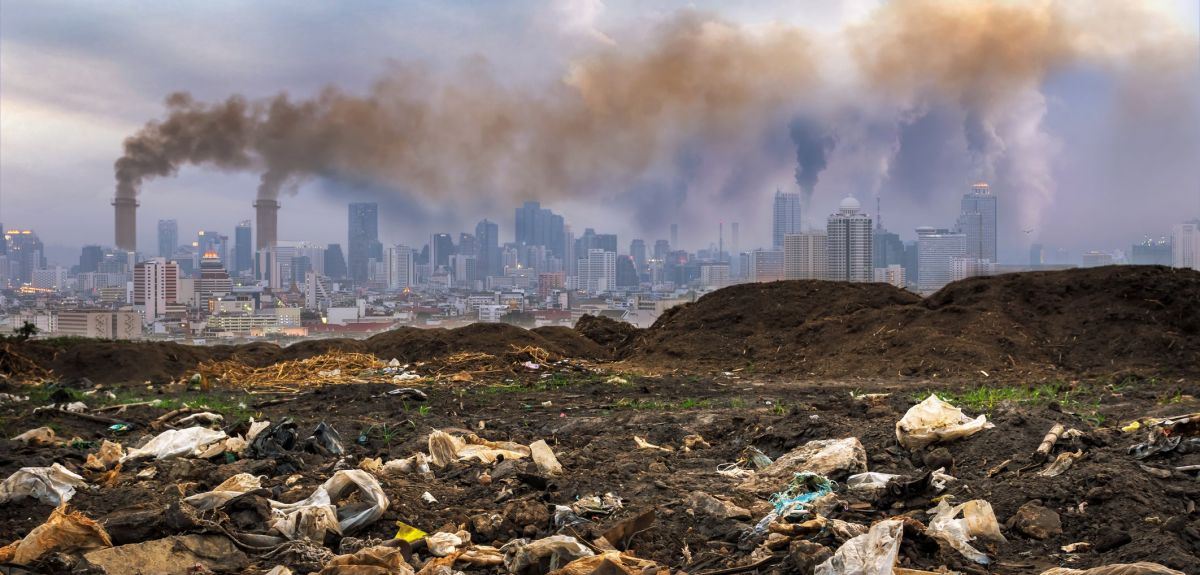
Expert comment: Urbanisation’s role in the climate crisis is being overlooked
 Professor Michael Keith.
Professor Michael Keith.Urban growth is driving environmental change at an unprecedented scale. The data on this is clear — according to the Intergovernmental Panel on Climate Change, in 2020 urban areas collectively contributed about three-quarters of carbon dioxide equivalent emissions.
Addressing such a gigantic and decentralised issue presents huge challenges, but the fundamental starting point has to be placing the science in front of policymakers. In a recent piece for Science, our team of researchers from the Peak Urban project — an international collaboration between universities in Oxford, Bristol, China, Colombia, India and South Africa — have argued for the establishment of a body to do just that: a new Urban Science Advisory System to work in tandem with the UN General Assembly.
This doesn’t need to be a vast policy behemoth like the UN’s IPCC, which — while strikingly powerful in many respects — has grown into a large, costly bureaucracy. Our proposed body would be much smaller.
But it needs to be created now.
Urban land areas could more than triple between 2015 and 2050, and the building of new cities will require vast amounts of raw materials such as sand, metals and wood; the acquisition of which will transform ecosystems the world over. If humanity continues to build cities in the same way we have over the past century — low density, energy and material intensive — more raw materials will be required than the planet can sustainably provide. And this is just to build tomorrow’s cities, not even power them.
Globally, urban land expansion is one of the primary drivers of habitat and biodiversity loss. The increasing fragmentation of the non-urban land that remains interrupts wildlife and ecological zones and increases risks from fire, pests and diseases. And climate migrants in the global south far more often move from rural areas into big cities, than across international borders.
Emerging threats may even occur as trade-offs from our efforts to mitigate environmental challenges with energy-efficient technologies — such as LEDs, which contribute to light pollution and detrimentally impact nocturnal species.
Our proposal for a new global Urban Science Advisory System would stop the urban challenge being rendered invisible in current thinking about the climate crisis. As a means of ensuring the body is manageable, we suggest following the successful structure of the Committee for Development Policy that advises the UN’s Economic and Social Council which, while comprised of only 24 people, has been providing valuable advice since 1965. Members of the committee are nominated in their personal capacity by the UN secretary-general and appointed for a period of three years.
Academia and policymaking have too often failed to join up science with urban management. We may know the aggregated impacts of cities on the environment, but we need to dig deeper to understand what is actually happening within those cities to make them the primary cause of our planetary crisis. The new body should combine arithmetic knowledge of complex systems with practical knowledge of governance reform — and connect people who work on cities with those who run them, thus generating new thinking on systems change between international policy networks and the cities in question.
The IPCC has already commissioned a special report on climate change and cities for 2024. This is not enough. The time has come for the international policy systems to pair climate science with urban expertise in shaping solutions to the civilisational threats of the 21st century.
The perspective 'Designing policy for Earth’s urban future' has been published in Science.
 Expert Comment: Chatbot-driven sexual abuse? The Grok case is just the tip of the iceberg
Expert Comment: Chatbot-driven sexual abuse? The Grok case is just the tip of the iceberg
 New study finds that stopping weight-loss drugs is linked to faster regain than ending diet programmes
New study finds that stopping weight-loss drugs is linked to faster regain than ending diet programmes
 How Global South cities can work better: free course based on Oxford-led urban research
How Global South cities can work better: free course based on Oxford-led urban research
 Finally: COP considers cities and the climate crisis
Finally: COP considers cities and the climate crisis
 Rewilding cities: grow back greener, cleaner and healthier
Rewilding cities: grow back greener, cleaner and healthier